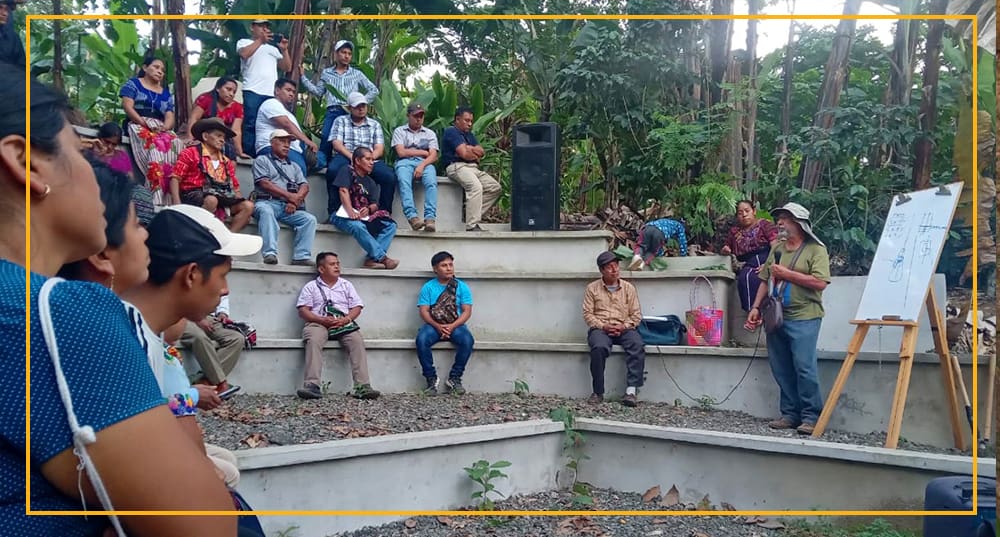
Resumen del programa
Durante generaciones, las familias rurales guatemaltecas se han enfrentado a los retos de la desnutrición crónica, las enfermedades, la pobreza y el acceso limitado a los recursos.
A través del Programa de Semillas para un Futuro, las familias y las comunidades están tomando medidas proactivas para afrontar estos retos cultivando sus propios alimentos nutritivos, mejorando la salud de los hogares y creando nuevas fuentes de ingresos.

El objetivo subyacente del Programa Semillas para un Futuro es proporcionar formación esencial para que las familias y las comunidades creen su propia seguridad alimentaria y vivan vidas más sanas.
Iniciado en 2009, nuestro Programa es un programa práctico de tutoría de 12 meses con formación y controles semanales.
A los participantes no se les expone simplemente a nuevos conocimientos e información y luego se les deja solos.
Se les forma y apoya para ayudarles a reconocer y resolver problemas, a sentirse cómodos y seguros de sus conocimientos y a integrarlos en su pensamiento y rutina diarios.
A medida que cada familia adquiere soltura con sus huertos de permacultura, sus animales y sus conocimientos sobre nutrición y salud, comparten sus conocimientos con la familia ampliada y los vecinos.
A través de la acción personal, los participantes en el Programa pueden superar muchos de los obstáculos a los que se enfrentan y llevar una vida resiliente y autosuficiente.
Este planteamiento "ascendente" a largo plazo permite a los habitantes de las zonas rurales de Guatemala generar de forma sostenible su propia seguridad alimentaria, disfrutar de dietas sanas que reducen enfermedades como el retraso del crecimiento infantil, y fomentar nuevas oportunidades de ingresos.
Hasta 2026, casi 6000 familias han participado en el programa, que actualmente opera en 21 comunidades de las zonas rurales de Guatemala.
El programa Semillas para el Futuro combina tres elementos básicos:
Seguridad alimentaria sostenible
Educación nutricional y sanitaria
Creación de microempresas
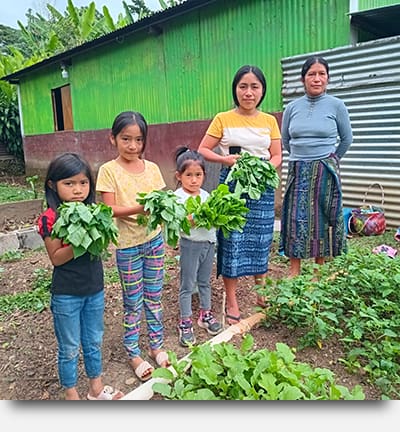
¿Cuál es el impacto del programa "Semillas para el futuro"?
Los participantes en el programa se vuelven más autosuficientes y autosuficientes creando los siguientes resultados para sí mismos:
- Seguridad alimentaria sostenible
- Mejora de la salud y el bienestar
- Nuevas oportunidades de ingresos
De vital importancia es que, con una mayor seguridad alimentaria y una mejor nutrición, nacen menos niños con retraso del crecimiento y problemas de salud, mientras que los niños y los adultos viven vidas más sanas y plenas.
Entre 2014 y 2017, el Instituto para la Nutrición en Centroamérica y Panamá (INCAP), de prestigio internacional, llevó a cabo un estudio del Programa Semillas mediante un ensayo controlado aleatorizado.
Financiada por la Fundación Nestlé de Suiza, la investigación del INCAP reveló que las estrategias y métodos de Semillas para un Futuro producen mejoras positivas cuantificables en la salud de las madres y los bebés participantes, reduciendo las tasas de anemia infantil del 47% a menos del 5% en las familias que participan en el Programa, lo que supone una reducción de más del 90%.
"Es la primera vez que un proyecto integrado de salud, nutrición y agricultura demuestra un resultado positivo en los biomarcadores bioquímicos de mujeres y niños, por lo que existe un gran potencial para extender el modelo a otras regiones."
El Programa también empodera a las mujeres al tiempo que ofrece nuevas oportunidades a ciudadanos que, de otro modo, habrían emigrado al extranjero para permanecer en sus comunidades.
Fomentar el desarrollo comunitario
Nuestro Programa incluye factores vitales para lograr la aceptación y la resiliencia dentro de las comunidades:
Sensibilidad al contexto cultural
Adecuación a las necesidades e intereses
Neutralidad étnica, política y religiosa
Utilización de técnicas de aprendizaje adecuadas, como el aprendizaje práctico y la observación guiada.
Diseño asequible y efecto de refuerzo del éxito temprano
La experiencia ha demostrado que estos factores también son fundamentales para el éxito:
Los equipos sobre el terreno son locales y han recibido formación para fomentar el respeto mutuo.
Fomentar la innovación y aprender tanto de los fracasos como de los éxitos.
La autoselección de las familias indica su voluntad de aprender y poner de su parte
Fomentar el intercambio de conocimientos y recursos
La integración y el alcance del Programa en las comunidades a las que sirve no ha sido cuestión de suerte.
El duro trabajo y la perseverancia del equipo y de los participantes en el programa han dado lugar a un programa único de seguridad alimentaria y salud a largo plazo que sigue creciendo y ampliándose.
El programa de Semillas para el Futuro se ajusta a los siguientes Objetivos de Desarrollo Sostenible de las Naciones Unidas:
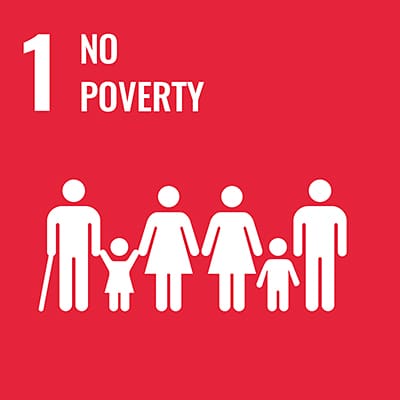
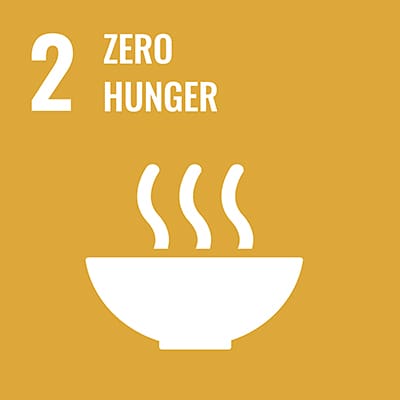
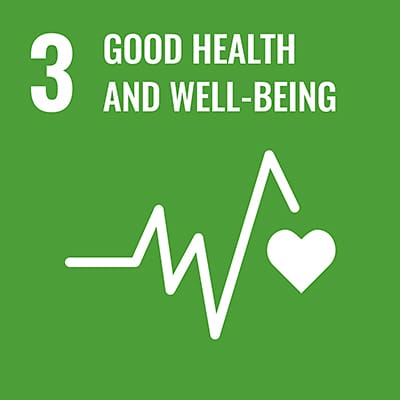
Nuestros socios:







